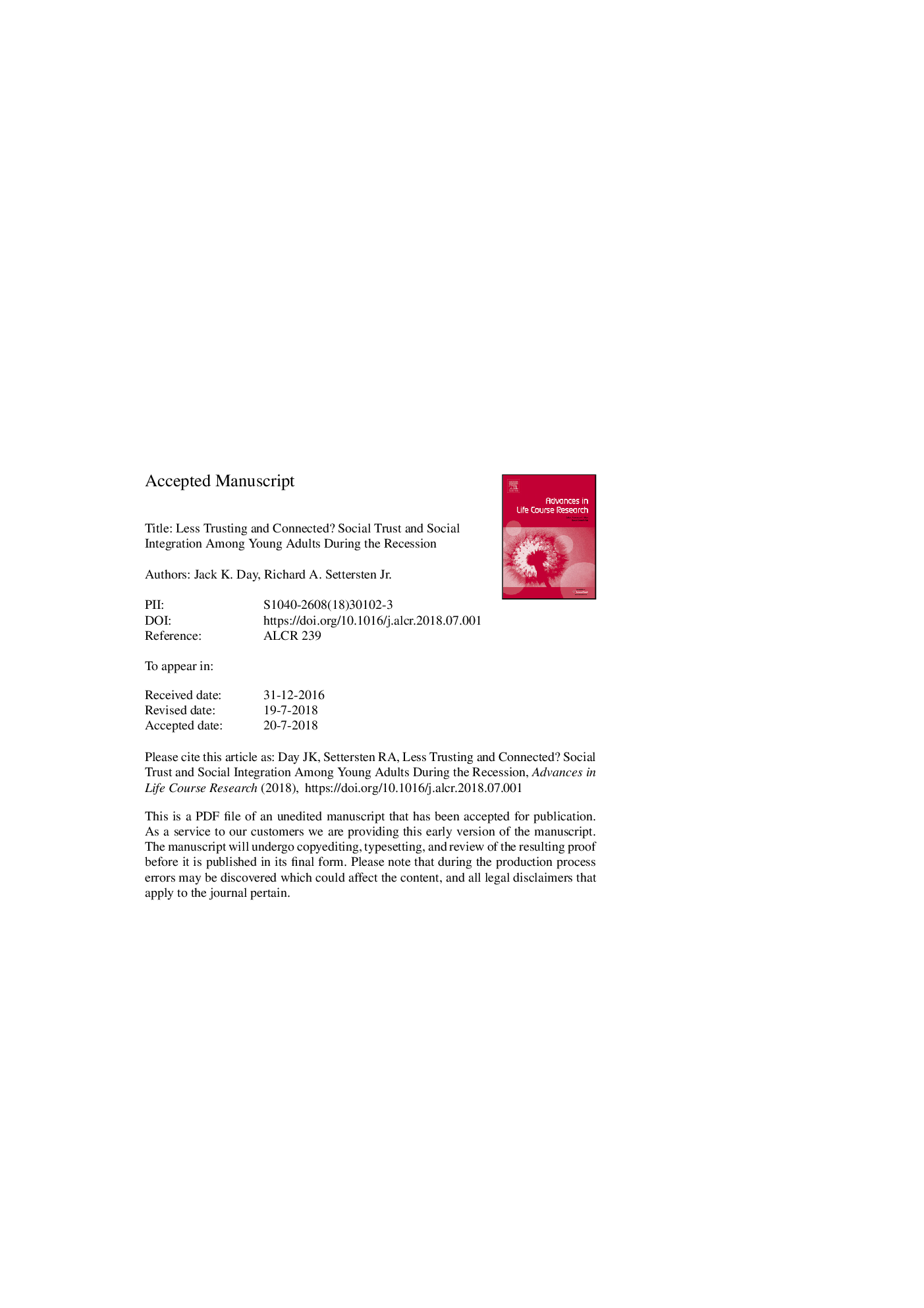| Article ID | Journal | Published Year | Pages | File Type |
|---|---|---|---|---|
| 6784700 | Advances in Life Course Research | 2018 | 47 Pages |
Abstract
The transition to adulthood became more precarious in the United States and many other countries during the Great Recession of the late 2000s. We investigate perceived social trust and social integration - and the relationship between the two - during this period. We draw on longitudinal data from the U.S. Panel Study of Income Dynamics (PSID) to examine social trust and social integration among young adults (aged 18 to 25; n = 728) before, during, and after the nadir of the recession. Cross-lagged models were estimated to assess the reciprocal relationship between a variety of concepts related to social trust and social integration among young adults at four time points: 2005; 2007; 2009; and 2011. Findings indicate that social trust and social integration fluctuated over time but surprisingly did not uniformly decrease during the economic recession. Rather, social trust was highest among young adults during the recession, and was especially predictive of feeling connected to a community and having greater confidence that one has something of value to contribute to society. Additionally, stronger feelings of self-worth were associated with higher social trust and greater confidence in society. Results highlight that investments in social trust and social integration may be mutually beneficial, and that social trust and social integration are robust and were not jeopardized as youth entered adulthood during a significant recession.
Related Topics
Physical Sciences and Engineering
Mathematics
Statistics and Probability
Authors
Jack K. Day, Richard A. Jr.,
